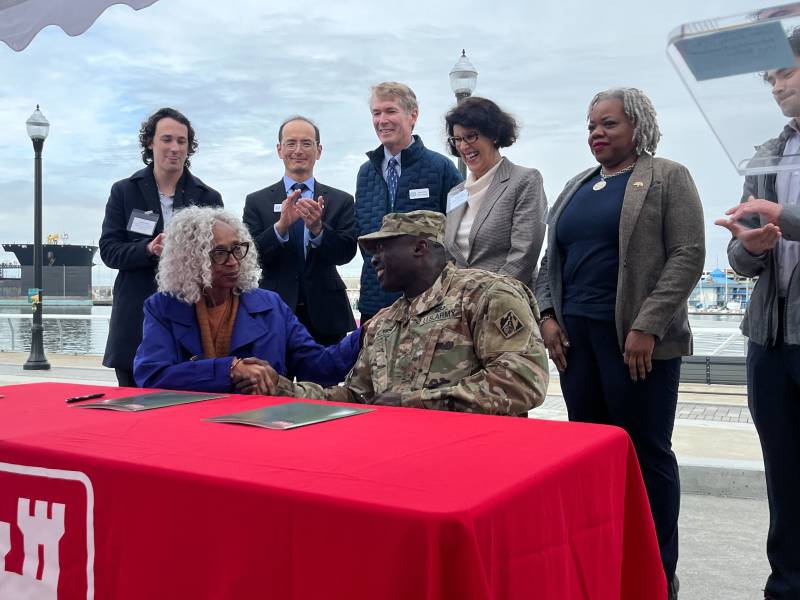“The recycled water traveling through this recycled pipeline will help reduce pollution in San Francisco Bay, ensure greater drought and climate resiliency, reduce the use of drinking water for irrigation and industrial uses and improve our emergency preparedness,” Ashcraft said.
“This park that we are in right now, Bohol Circle Immigrant Park, and the development right next to us, will be two of the first sites to receive recycled water for irrigation once this project is completed,” said Lesa McIntosh, EBMUD’s board president.
Once completed, the Oakland-Alameda Estuary Crossing Pipeline could move up to 500,000 gallons of water daily from EBMUD’s Oakland Wastewater Treatment Plant, according to the organizers.
Officials expect to spend roughly two years on the planning and design phase of the project. That includes an assessment of the pipeline that is meant to be repurposed.
The half-mile pipeline, which dates back to the 1940s, previously carried potable water to Alameda. It was abandoned after EBMUD completed the Oakland Inner Harbor Crossing project last year, which included thousands of feet of new earthquake-resistant pipeline.
After the initial phase, the project could be up and running by late 2027.
“We all know how critical these recycled water projects are to the local community as they look to modernize their infrastructures as we face global climate change,” said Deputy District Commander Major Shantel Glass, of the U.S. Army Corps of Engineers at the signing.
EBMUD customers currently use 9 million gallons of recycled water every day. Utility officials said this project will help reach their goal of increasing that number to 20 million by 2040.
A large Veterans’ Affairs facility planned for the city of Alameda is expected to be among the biggest consumers of recycled water once it’s complete, using an estimated 12 million gallons per year for irrigation.
A construction date for the pipeline project has not yet been set.

